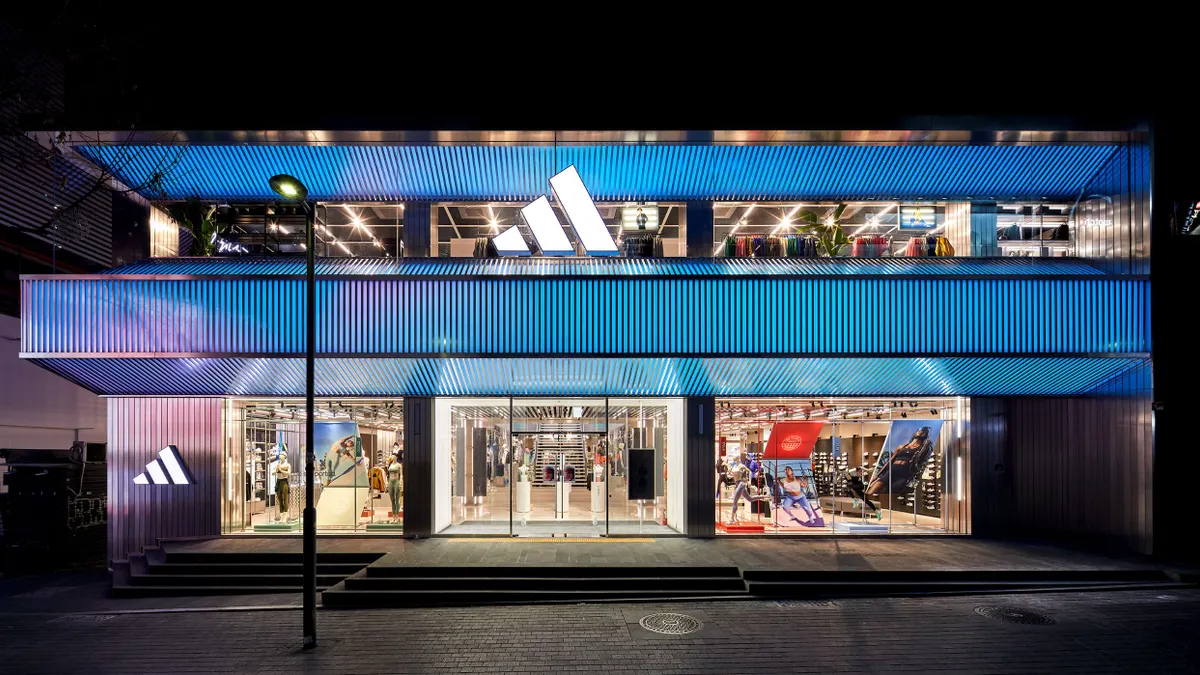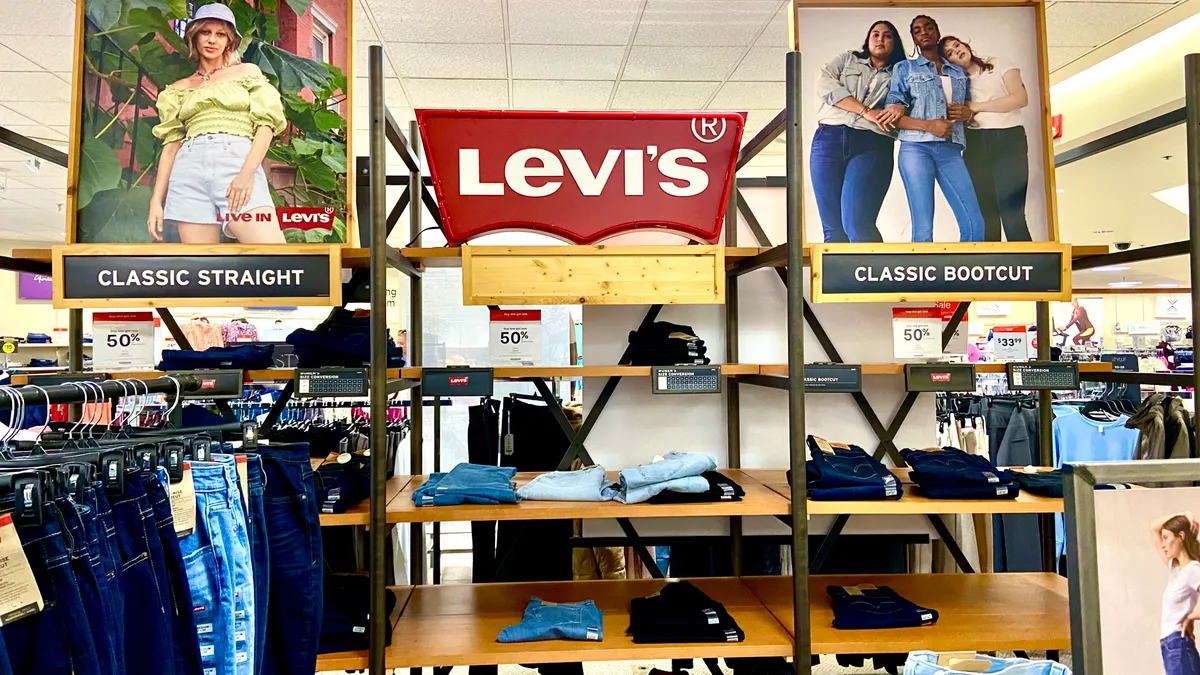To better understand how private equity investment has affected the contemporary retail industry, Retail Dive collected data provided by Debtwire, Pitchbook and other sources, as well as from our own research. Our goal was to build as comprehensive a list as possible of private equity acquisitions, narrowed to those retailers relevant to our audience, going back more than 15 years. We then tried to track outcomes of those mergers by looking at Moody's ratings, Chapter 11 filings and other data. The rest of the series can be found here.
Fifteen years ago, Moody's analyst Charlie O'Shea was giving a talk at a conference when he mentioned having worked with private equity in his previous career in the banking world. Someone in the room asked him about the acquisition potential in retail.
"I said, 'You know … there's roughly $150 billion lying fallow in private equity funds right now,'" O'Shea told Retail Dive, recalling his 2003 talk. "'My guess is, we're going to see heightened activity, because this money has to be deployed somewhere." Soon after, the retail industry started to see an "explosion of buyout activity," he said
The year O'Shea gave that talk, private equity firms made three major retail acquisitions, according to lists Retail Dive compiled from data provided by Pitchbook and Debtwire, as well as our own research. Two years later, in 2005, private equity buyouts in the industry nearly quadrupled, with 11 acquisitions that year.
The pace kept up until the recession. In 2006, private equity firms bought 14 major retailers. In 2007, 13.
Part of the reason for that was private equity investment across the board increased during that period. According to a Piper Jaffray report from December 2005, leveraged buyout volume per year across industries jumped from $19.6 billion in 2001 to $119.8 billion by the end of 2005, a more than 500% increase. During that time debt going to finance those acquisitions also increased nearly seven times over, to $85.9 billion in 2005 (which funded about 72% of the merger activity at the time).
Piper Jaffray analysts at the time pointed to strong fundraising by private equity firms, increased availability of cash on the markets and increasing piles of uninvested capital. In retail specifically, analysts said that "interest from private equity firms has been solid and has been aided by attractive credit markets."
Not surprisingly, the buyouts in retail dipped to near-nothing numbers during the recession. But as early as 2009, they were ticking back up. After four in both 2009 and 2010, private equity acquisitions increased to 11 in 2011. From there, private equity players bought 11 companies in 2012, 10 in 2013, 10 in 2014, seven in 2015 and 10 in 2016.
Low interest rates and the corresponding cheap cost of debt can explain a lot of this. "If you're a private equity firm looking to get into any industry, like retail, or anything, in terms of the cost of capital and the ability to finance that investment, we are in a massive bull market right now," Will Caiger-Smith, an associate editor with Debtwire, told Retail Dive in an interview.
And at the same time as low interest rates drove down the cost of debt to finance acquisitions, money started pouring into private equity as investors (also reacting to low interest rates) sought higher-yield vehicles for their capital. Caiger-Smith points to a "shift into private equity funds looking for higher returns" that has left those funds sitting on record amounts of "dry powder," a term indicating an investing firm's available capital.
As private equity ramped up their retail investments after the recession, acquirers presumably did not foresee the consolidation and disruption coming in the market. "There were a lot of buyouts in the mid-2000s," Cort Jacoby, a partner in A.T. Kearney's consumer and retail practice, said in an interview. "They were acquired, levered up, investments were made in store growth. The leverage worked against them."
"If you're a private equity firm, and you have ideas for how to shake a stale business model up and help a retail company compete with the likes of Amazon and other e-commerce providers, it has been a place … where you can maybe find a bargain," Debtwire's Caiger-Smith said. "But there's also a risk that if you bought a company in 2011, 2012, and you did not anticipate the huge sweeping changes in the industry and the disruption Amazon was going to bring — you made that investment with a lot of leverage, so your margin for error was smaller."
W. Paul Jones, former CEO of Payless — which was bought out by Golden Gate Capital in 2012 — told Retail Dive that the industry did not anticipate the speed with which consumers would shift to e-commerce.
"There was something going on with the consumer or externally, you just couldn't see what was happening," Jones said of his time running Payless for Golden Gate, before the company filed for Chapter 11 with more than $1 billion in debt on its books, a legacy of its buyout. "You can't turn your business anymore. You can't just add a promotional event. Those days are just gone."
"There is no fast turnaround in retail today."

W. Paul Jones
Former CEO of Payless
The pace of acquisitions does seem to have slowed down in the years of what's colloquially called the "retail apocalypse." In 2017, a year of record retail bankruptcies, there were six acquisitions in the sector made by private equity firms (included in Retail Dive's list is Sycamore Partner's purchase of The Limited's intellectual property out of bankruptcy). In 2018, there have been two so far.
So, what does the pace look like for the future? While the proliferation of retail chapter 11s might give pause, the downturn in the sector has also created opportunities as stock prices fall and private equity companies can find bargains, as Caiger-Smith points out. Moreover, interest rates are still fairly cheap, making leveraged buyouts available.
"Private equity buyouts now are often happening with higher leverage, much looser investor protections, and as a result, the higher leverage means you have less margin for error if the company's performance starts to decline," Caiger-Smith said.
As just one example, Sycamore bought Staples last year for nearly $7 billion. At the same time, the Nordstrom family reportedly mulled taking private the department store company bearing their name with help from a private equity partner, but they couldn't come up with the financing to do the deal.
Jones has talked to more than "half a dozen" private equity firms since retiring from Payless. "And I have told these guys, 'You guys have no idea how volatile the market is. You know what? It's a new world.'"
To his colleagues who might be considering taking executive positions with private equity-owned retailers, Jones tells them to dig into the owners' business projections.
"What is the liquidity profile of the business given the volatility in retail?" he said, describing those conversations. "What is their attitude and patience level and timeline for the investment, particularly for a traditional brick-and-mortar retailer? What is the forecast for the next five years? If it's anything above the best year of the last five years, then they're being more aggressive. Don't allow anyone to plan above the best year in the last five. There is no fast turnaround in retail today."
The Series
- Intro
An in-depth look at the risky relationship
- Bankruptcy
The road to bankruptcy
- Acquisitions
The biggest buyouts
- Investments
The hungriest acquirers
- Overloaded
The debt-burdened retailers























